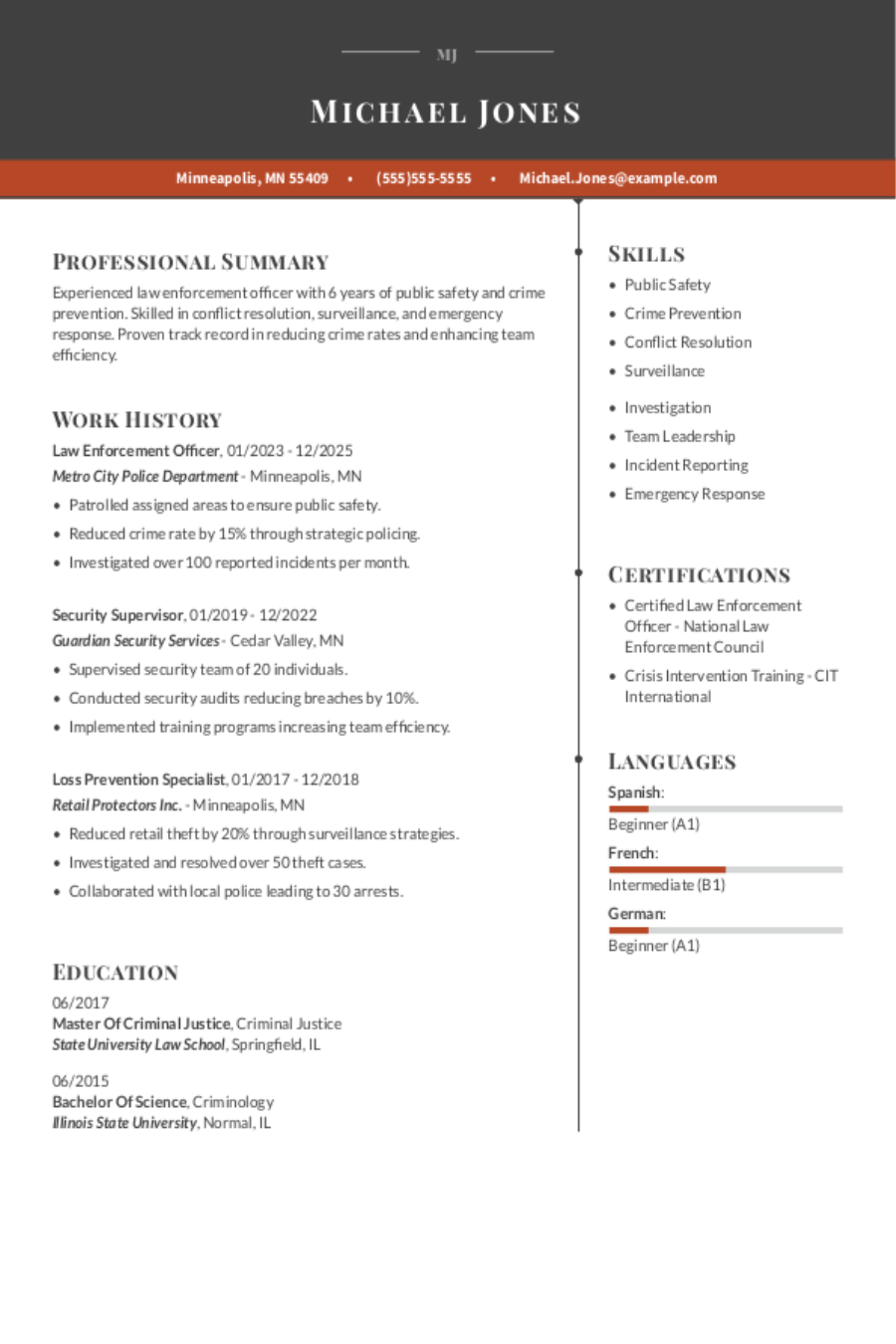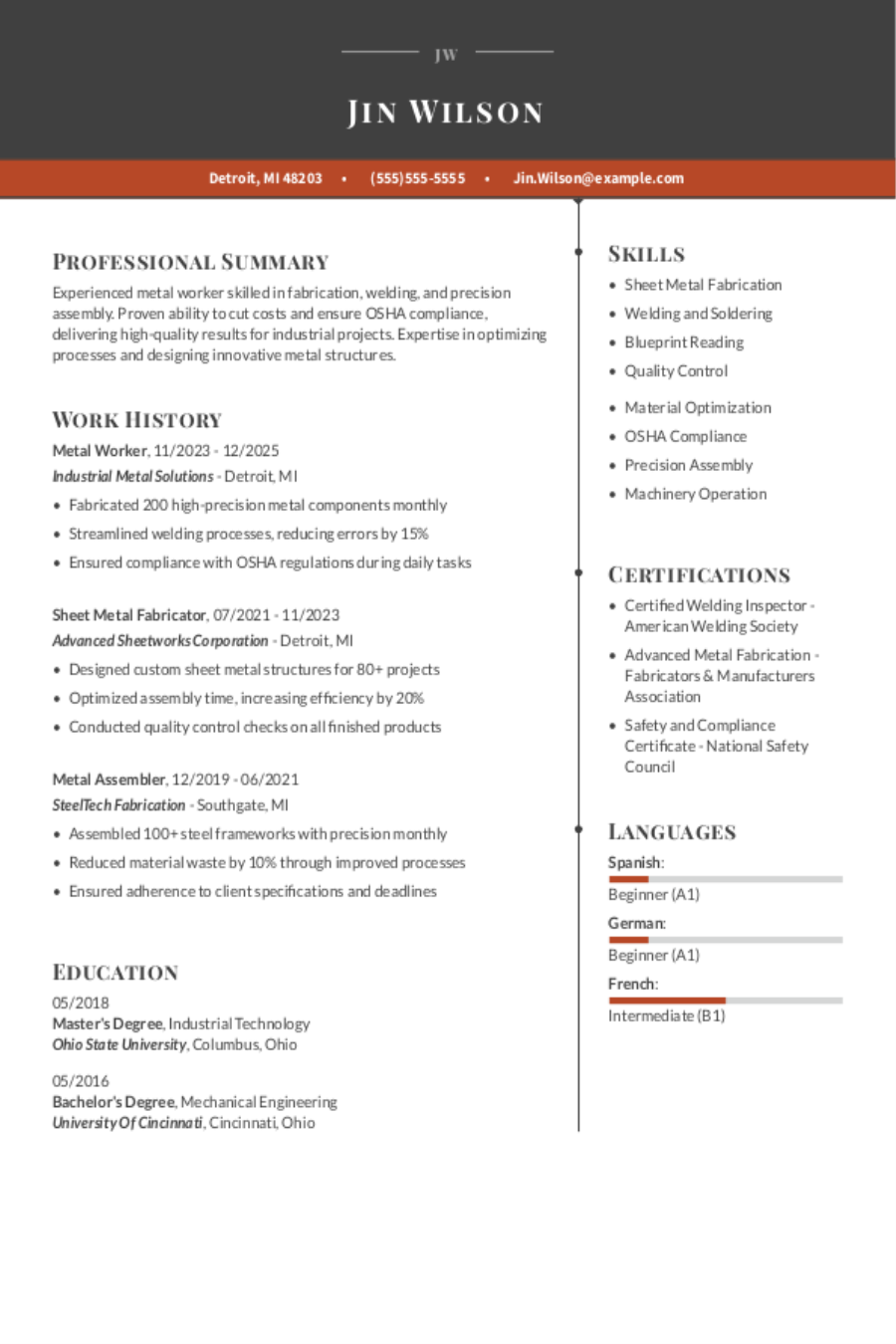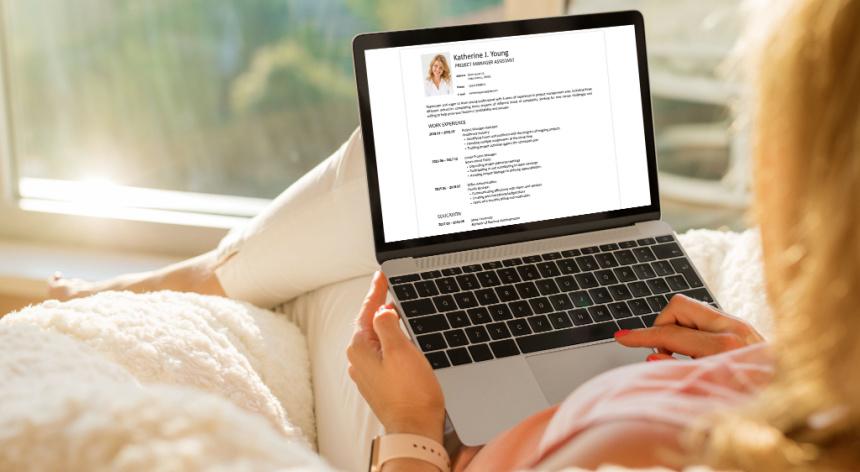Table of contents
In today’s world, customer service can make or break a business. Customers want great service along with great products.
Job seekers with strong customer service skills have a huge advantage. Why? A whopping 82% of customers in the U.S. say human interaction matters more as technology improves.
But simply having these skills isn’t enough. You need to highlight them properly on your resume to impress employers. This guide will show you exactly how to do that.
Here’s what we’ll cover:
- The definition of customer service skills.
- Customer service skills examples.
- How to list customer service skills on your resume.
- Other skills to include on your resume.
Are you making a resume to showcase your outstanding customer service abilities? Consider using a AI resume builder. These tools streamline the resume creation process and offer a wide range of customer service skills examples that you can effortlessly incorporate with just a click.
What are customer service skills?
Customer service skills are the abilities and techniques used to help and support customers.
They’re more important than ever because customers feel squeezed. Whether dealing with inflation or stressful personal situations, customers are looking for a port in the storm, and a calm, supportive voice can make a big difference.
These skills are the core skill set in many industries, including retail, hospitality and telecommunications. At the same time, they come in handy in surprising fields, too, like healthcare, education and technology.
30 great customer service skills [examples for your resume]
Customer service skills are important for helping people and making their experiences better. Whether you’re talking to patients, working with co-workers or teaching families, these skills make a difference.
Let’s take a closer look at the key customer service skills you should highlight on your resume.
Communication skills
Without communication skills, customer service representatives couldn’t connect with customers, work with co-workers or solve problems. That’s why it’s one of the most important skill sets in the customer service toolbelt.
Here are a few key examples:
- Active listening
- Clear verbal communication
- Effective written communication
- Nonverbal communication
- Empathy and understanding
Problem-solving skills
Need to find a good solution to customer issues quickly? Problem-solving skills are the name of the game.
Here are some problem-solving skills that would help you land a customer service role:
- Analytical thinking
- Creativity in finding solutions
- Decision-making
- Conflict resolution
- Resourcefulness
Technical skills
Even if your job isn’t highly technical, you might find technical skills play an important role in customer service. These skills help you use tools and software to assist customers.
Here are some technical skills to consider for your resume:
- Proficiency with customer relationship management (CRM) software
- Basic troubleshooting of common technical issues
- Familiarity with point-of-sale (POS) systems
- Ability to navigate company websites and online portals
- Knowledge of industry-specific software
Professionalism
Professionalism is so fundamental to good customer service that it’s almost taken for granted. It means having a positive attitude, being reliable and following company rules, to cite just a few aspects of professionalism.
Here are some other related skills:
- Reliability and punctuality
- Maintaining a positive attitude
- Adhering to ethical standards
- Professional appearance and demeanor
- Time management
Interpersonal skills
Relationship-building is another cornerstone of customer service, and interpersonal skills are how you get there.
Here are a handful of interpersonal skills related to customer service:
- Empathy and understanding
- Building rapport
- Conflict resolution
- Teamwork and collaboration
- Patience
Customer orientation
Here’s a batch of unique skills specific to customer service roles. Customer orientation means putting the customer first and meeting their needs. It involves understanding the customer’s perspective and going the extra mile.
Here are some customer orientation skills:
- Anticipating customer needs
- Personalized service
- Follow-up and follow-through
- Customer advocacy
- Attention to detail
How to add customer service skills to your resume
Okay, even when you have your skills lined up and ready to go, how do you add them to your resume?
First piece of advice — you want a mix of hard skills and soft skills. Even though soft skills like empathy and active listening are what most people think of when they think of customer service, hard skills, such as CRM software proficiency and technical troubleshooting, are equally important.
A customer service resume should be full of skills like these. We’ll show you how to add them, step by step.
Look for customer service skills in the job ad
How do you know which skills to highlight on your resume? Read the job description.
The job listing will lay out the duties and requirements for the role. Somewhere in there, you will find the skills most important to the employer.
Better yet, you’ll be more likely to pass the applicant tracking systems (ATS). The ATS filters out resumes that don’t include the right set of keywords. You can find these keywords by closely reading the job description and noting the specific skills and qualifications mentioned.
Not sure what we’re talking about? Let’s look at an example of a job ad, with the customer service skills in bold:
Customer Service Representative Job Description:
We are looking for a dedicated customer service representative to join our team. The ideal candidate will have excellent active listening skills, strong creativity in problem-solving and a keen eye for detail. Responsibilities include handling customer inquiries, providing support through various channels, and maintaining customer satisfaction. The candidate should be proficient with inventory management systems and capable of managing multiple tasks efficiently.
Responsibilities:
- Respond to customer inquiries via phone, email and chat with strong verbal communication skills.
- Resolve customer issues using effective analytical thinking.
- Maintain accurate records of customer interactions in our data entry systems.
- Provide timely and accurate information to customers.
Requirements:
- Excellent written communication skills.
- Strong decision-making abilities.
- Experience with technical troubleshooting.
- Ability to multitask and manage time effectively.
Make sense? After you highlight the skills, it’s time to add them to your resume.
Use your research skills to learn more about the company so you can also align with their higher-level goals in your resume and the job interview. For example, if the company values customer satisfaction above all else, emphasize your ability to ensure customer happiness and retention.
Create a skills section
First things first — you need a skills section.
When you’re trying to highlight your customer service skills, this section is like the friendly smile at the front desk, setting the tone for the rest of your resume.
If you’re doing a straightforward chronological resume that focuses on your work history, you’ll probably only have one skills section. If you’re doing a functional resume that prioritizes your skills and downplays work history, you might have two or three sections.
Okay, here’s an example of a skills section you’d find on a resume, focusing on the skills in the job ad:
Skills
- Creativity in problem-solving
- Verbal communication skills
- Active listening skills
- Analytical thinking
- Written communication skills
- Decision-making abilities
- Technical troubleshooting
See how easily those skills transition from the job ad onto a resume?
If you are changing careers, make sure to include and prioritize transferable skills. Transferable skills, like being adaptable, problem-solving and time management, are valuable in many different jobs and show that you can bring important abilities to your new role.
Highlight skills throughout your resume
Your resume as a whole is designed to highlight your skills much like a customer service representative showcases their best abilities while assisting customers.
Consider the rest of your resume — from the professional summary at the top to the education section near the bottom of your resume (if you’ve been out of school for a while), every section is a skills-delivering machine.
Let’s begin with the summary — or an objective statement. Here, you can briefly describe your career goals and key qualifications in three to four sentences. This is prime real estate on your resume, so you should focus on your most relevant and important skills to catch the employer’s attention right away.
Okay, here’s what a summary looks like when you include customer service skills from the job ad:
Dedicated customer service representative with excellent active listening skills and creativity in problem-solving. Skilled in using verbal communication to resolve customer issues and maintain high levels of customer satisfaction. Proven ability to think analytically and make sound decisions in a fast-paced environment.
Now take a look at your work history. This section is the core of most resumes, and every bullet point is another opportunity to highlight a skill — and the impact it has made.
Work Experience:
Customer Service Representative
XYZ Company, Anytown, USA
January 2020 – Present
- Utilize active listening skills to understand and address customer concerns effectively.
- Implement creative problem-solving techniques to resolve issues, resulting in a 20% increase in customer satisfaction.
- Employ strong verbal communication skills to provide clear and concise information to customers.
- Analyze customer feedback to improve service processes and enhance overall experience.
There’s one more piece of the puzzle — your cover letter.
You can add skills to your education section by highlighting relevant coursework, projects or extracurricular activities that demonstrate your abilities. For example, if you took a course on communication, mention how it helped you develop your verbal communication skills and analytical thinking.
Don’t forget your cover letter!
One last stop — your cover letter.
Your cover letter isn’t only a great forum for telling your professional story. It’s also a way to hammer home your most relevant and important skills.
When you’re writing a cover letter for a customer service agent or similar role, come with a list of skills you’d like to highlight one more time.
Maybe these are skills that didn’t make your resume. Maybe they’re skills you want to mention as much as possible during the course of the application process.
Curious about how to make a stronger cover letter? Review some cover letter examples for inspiration.
In the next section, we’ll show you how to improve your customer service skills.
How to improve your customer service skills
Do you feel like your customer service skills need improvement? You aren’t alone. There are thousands of people in the same boat, and there are countless ways to develop this skill set.
Here’s a list of ideas for improving your skills. It’s not comprehensive, but it’s a start!
- Practice active listening: Focus fully on the customer — or conversation partner — when they are speaking rather than thinking about your response. Practice repeating back the points they brought up to see if you are understanding correctly.
- Take a course: Anything you want to learn, there’s an online course for it. Search Coursera and companies that offer customer service training courses and certifications, like SkillPath.
- Learn another language: Being able to assist customers in their native language can greatly improve the service experience. Consider online language learning apps like Babbel to improve your language proficiency.
- Role play: Practice responding to difficult customer situations with a co-worker or friend to improve your communication skills. Here’s a HubSpot blog post that can help.
- Ask for feedback: Seek input from customers, managers and peers on how you can improve your customer interactions. Take all of the feedback in good spirits — being overly defensive could undermine your goals.
- Read books or blogs: Resources like “The Customer Service Survival Kit” by Richard Gallagher and blogs like Help Scout offer tips and service best practices.
As we wrap up, we’ll share more skills guides and review what we’ve learned.
More skills resources
Haven’t found what you’re looking for? Maybe one of our other skills guides can help:
Customer service skills — key takeaways
Create a list of your customer service skills
Making a list helps you understand your strengths and the areas where you can improve. It also gives you a foundation to build on when tailoring your resume and cover letter.
Highlight the most important skills on your resume
Review the job description to identify key skills that the employer values and ensure these are included in your resume.
Don’t forget about your cover letter
Use your cover letter to provide specific examples of how you’ve used these skills to achieve positive outcomes in your previous roles.
Find ways to improve your skills
Seek out opportunities to enhance your skills through workshops, online courses, reading relevant materials and seeking feedback from peers and supervisors.
Was this information helpful? Let us know!
Don is a Certified Professional Resume Writer (CPRW) with more than 10 years’ experience creating digital content, including four years helping job seekers develop their careers. He holds an M.S. in Journalism from Northwestern University.
More resources

What Is an ATS Resume? How to Write an ATS-Friendly Resume in 2025
The rise in applicant tracking systems (ATS) means resumes nee...

How to Use Resume Now’s Resume Builder for Free
Try Resume Now s AI-powered Resume Builder for free to access ...

Law Enforcement Resume: Examples & Templates
Build & download your Law Enforcement resume in a few simple s...

Metal Work Resume: Examples & Templates
Build & download your Metal Work resume in a few simple steps....

Maintenance Resume: Examples & Templates
Build & download your Maintenance resume in a few simple steps...

